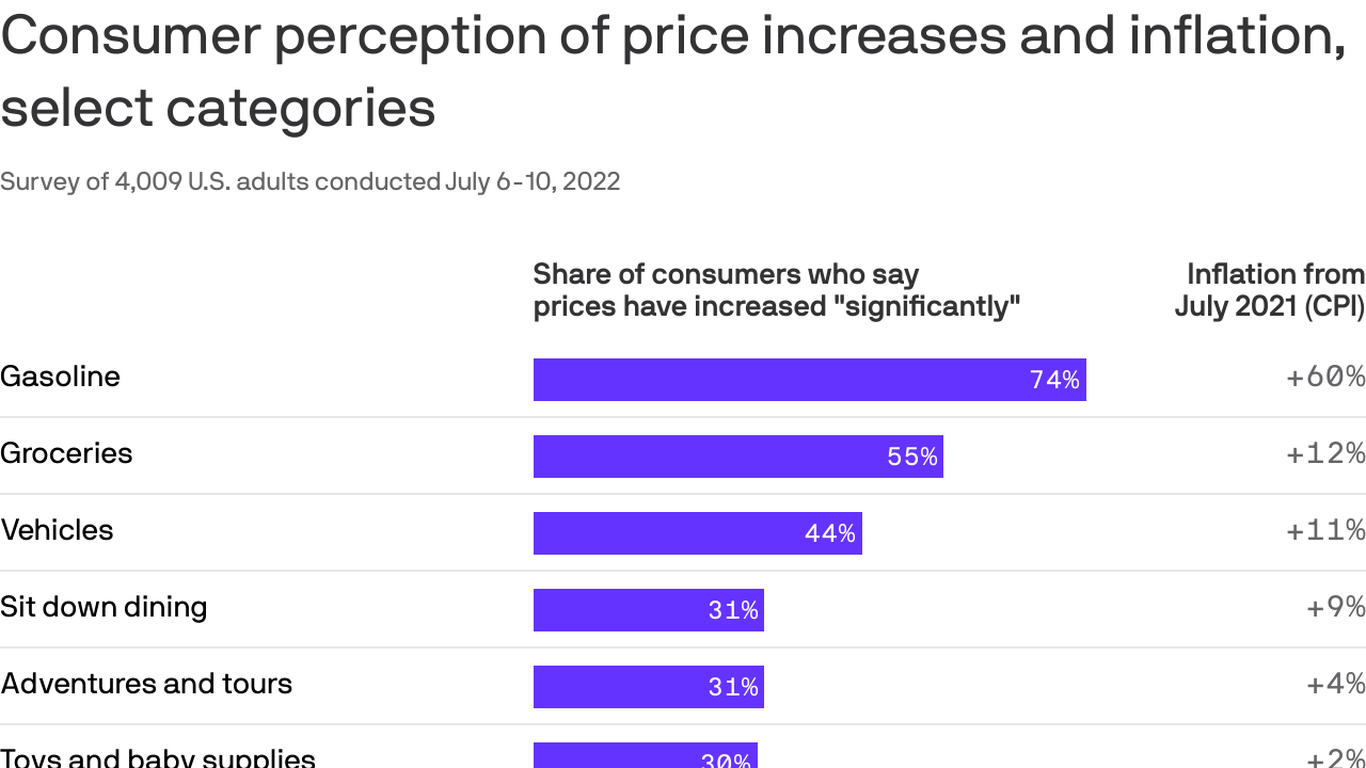
First, there's actual prices. Then, there's our perception of prices. There's a gap between the two.
Why it matters: Feelings about inflation affect consumer spending, political behavior and businesses' decision making.
What they found: "Perceptions of inflation don’t always match reality" and "there’s a misalignment of consumer perception to reality," according to a new McKinsey report on a survey of more than 4,000 adults.
- With the exception of our collective perception of gasoline prices, for example — and a few other items — people seem to think inflation is higher than it is, according to the McKinsey data.
- For example, 30% of consumers think prices increased "significantly" for toys and baby supplies in July, but that category was up only 2% compared with a year earlier.
- For jewelry, 25% of consumers thought prices rose significantly, but the category was up only 1%.
The bottom line: Inflation is bad, but it's not bad everywhere — and yet people's perceptions of price increases are likely contributing to their dour mood about the economy.
from "price" - Google News https://ift.tt/jbwX6G8
via IFTTT
No comments:
Post a Comment